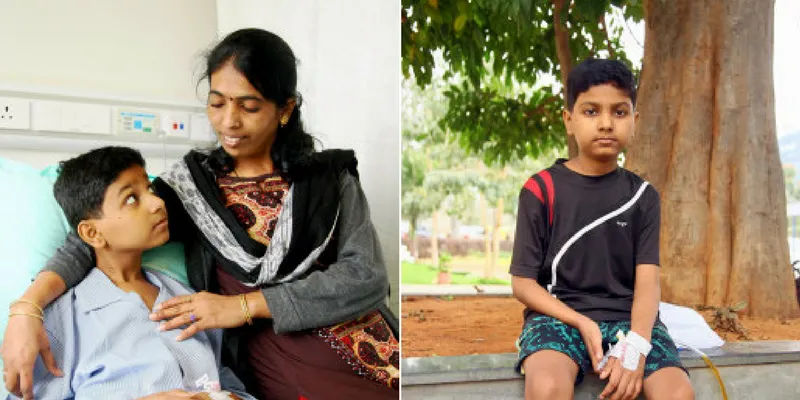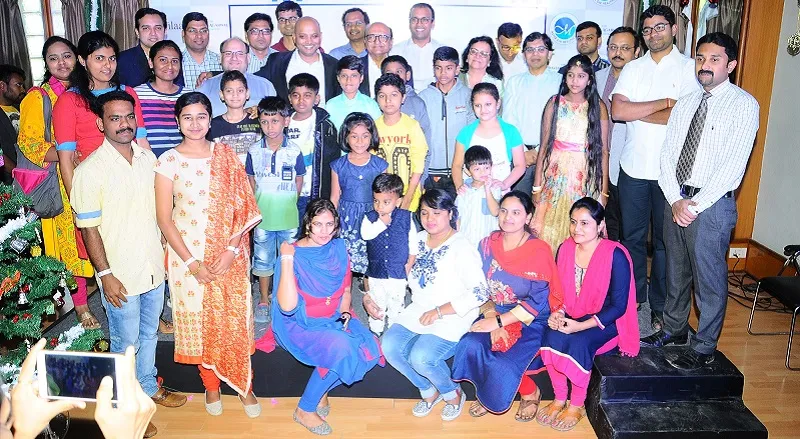Pioneering liver transplants in India, The Pravin Agarwal Foundation is expanding the ecosystem around organ transplants
With an initial corpus of Rs 50 lakh, the foundation has grown to provide financial assistance to 33 families for liver transplants.

The tale of Harsh, a 10-year-old child from Mumbai who faced a genetic issue with his liver, is emblematic of families where children require a liver transplant. With Harsh as well as his sister facing liver problems, the doctors in Mumbai told the family that a transplant was the only option, since his condition was critical. However, the family did not have access to the money required to get Harsh treated.
They learnt about The Pravin Agarwal Foundation (TPAF) and how it helps children in need of a liver transplant. Thus began a turn of events which led to receiving financial assistance form the foundation as well as post-operative care through the foundation’s partner hospital Asters in Bengaluru. Similar is the case of Asha*, a six-year-old who underwent a liver transplant with assistance from the foundation.
The foundation is the brainchild of Pravin Agarwal, Vice Chairman of Sterlite Technologies, and his son, Pratik Agarwal. The family believes in the positive impact that not only corporate social responsibility but also private philanthropy can have and, thus, after a lot of research and speaking to various stakeholders, the foundation was established as a philanthropic initiative to build an ecosystem of affordable liver transplants for low-income families. Sonal Asthana of Aster Hospital says,
The commitment to making liver transplants affordable by the foundation is exemplary. The structure put in place by the foundation has made a large difference as there is a limit to the work which individuals can accomplish. Due to the foundation, the hospitals are also more confident in treating patients.
Liver diseases are one of the least recognised causes of mortality in India. Estimates say that less than 10 percent adults and less than eight percent of children in need of a liver transplant receive it due to a variety of reasons. This is despite transplants costs in India being among the most inexpensive in the world. Dr Asthana says that there aren’t established funding ecosystems for the liver, as opposed to organs like the heart and kidney.
Darshan Mundada, Chief Architect of TPAF, adds, Liver is the only organ that regenerates itself and the patient and donor can lead healthy lives after the transplant. Thus, availability is not an issue since immediate families such as parents are a match in 99 percent of cases.
The foundation began as a funding mechanism but has since evolved into more than that. Apart from putting the requisite structure to create the ecosystem around liver transplants, awareness is also spread about the issue. The foundation has created a mechanism where the costs are split between the family of the patient, the hospital partner, crowdfunding, driven by Milaap and TPAF itself. This way, it creates hope for the families as well as maximises its reach in providing assistance to a large number of patients.

Dr Asthana explains the process:
The clinical team is heavily involved in the processes directly related to the patients such as identification of families, the socio-economic capability of the family to take care post-surgery as well as all the medical procedures. Since the foundation takes responsibility for the funds, doctors become more proactive in the cases.
Darshan also outlines the role played by the doctors saying that TPAF bases its funding on the doctors’ assessment and also relies on them completely to deal with the families of the patients. It acts as an enabler in the entire process, brings the funding and also provides insurance and gap funding if the crowd-funding goals aren’t achieved.
With a vision of crossing 100 successful transplants in 2018, TPAF is also planning other potential areas it could foray into. The doctors are looking at moving into prevention and early identification of liver disorders in children since transplants are the last resort for patients. Expanding corporate partnerships to raise funds is also on the agenda. Apart from this, TPAF is also looking at other areas around organ transplants in the country, such as organ transport, storage and retrieval that they have identified as a gap in the Indian context.
Dr Asthana concludes,
Ideally, prevention is key. A training mechanism also needs to be established for nurses, ICU staff and coordinators at all levels to build infrastructure around liver transplants. Programmes around vaccination and expanding awareness will go a long way in addressing the problem of liver diseases.
*Name changed on request







